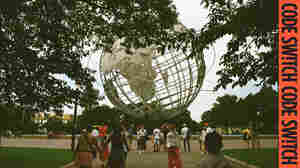Want to level up your Code Switch game? Try Code Switch Plus. Your subscription supports the show and unlocks a sponsor-free feed. Learn more at plus.npr.org/codeswitch

Code Switch
From NPR
What's CODE SWITCH? It's the fearless conversations about race that you've been waiting for. Hosted by journalists of color, our podcast tackles the subject of race with empathy and humor. We explore how race affects every part of society — from politics and pop culture to history, food and everything in between. This podcast makes all of us part of the conversation — because we're all part of the story. Code Switch was named Apple Podcasts' first-ever Show of the Year in 2020.
Want to level up your Code Switch game? Try Code Switch Plus. Your subscription supports the show and unlocks a sponsor-free feed. Learn more at plus.npr.org/codeswitch
Most Recent Episodes
From pee-wees to the pros, what football tells us about race in the U.S.
From pee-wees to the pros, what football tells us about race in the U.S.
Collage of football players falling, helmets and footballs. Jackie Lay hide caption
Protesters in Tehran chant slogans and one holds a poster with a vampire-like illustration of President Trump to protest the U.S. strikes on nuclear sites in Iran. Getty Images/Getty Images Europe hide caption
Iranian American identity was under scrutiny long before the U.S. struck Iran
Iranian American identity was under scrutiny long before the U.S. struck Iran
Shot of the Unisphere, the 140 foot-tall metal sculpture in the middle of Flushing Meadows Corona Park. The Unisphere was originally commissioned for the 1964-1965 World's Fair and has since become an icon for the borough of Queens. Wendy Correa/NPR hide caption









